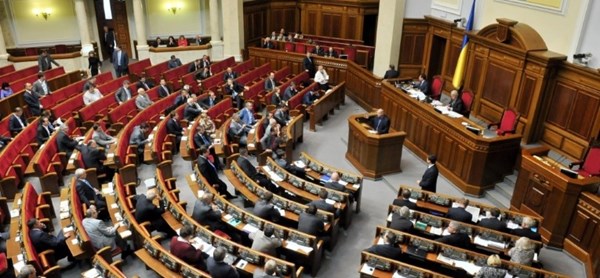Ukrainian Parliament passes law on anti-corruption court
Ukraine’s Verkhovna Rada has passed a bill “On the Supreme Anti-Corruption Court”. 315 MPs voted in favor of law No. 7440.
The day before, the Ukrainian government managed to reach an agreement with the creditors concerning an amendment to the powers of the Public Council of International Experts in the selection of judge candidates for the anti-corruption court.
The council will consist of six people, and not seven as had been planned previously. A minimum of three votes will be needed to veto judge candidates. This veto can be overruled by a majority of votes (at least 12) from the joint commission of 22 people, which will included members of the Supreme Qualification Commission of Judges (16 people) and the International Experts Council (six people). However, at least half of the members of the International Experts Council will need to vote in favor of overruling the veto (at least three people).
Council members will be appointed based on suggestions from international organizations, with whom Ukraine will collaborate in the area of preventing and counteracting corruption according to international agreements.
In general, the law stipulates that the Supreme Anti-Corruption Court will consider cases where the damage or object of the crime amounts to at least 500 subsistence minimums (currently 881,000 hryvnia). The Anti-Corruption Court will consist of judges, investigative judges and appeals chamber judges.
Ukrainian citizens can be appointed as judges in the Anti-Corruption Court if they have served as a judge for at least five years; or if they have a degree in law and have carried out scientific research in law for at least seven years; or if they have professional experience as an attorney, including representation in court and / or defense for at least seven years; or if they have at least seven years of combined experience in this field. The judges will be selected in a competition.
Persons who have worked in law enforcement agencies (including the NABU and SAP) or have held political positions in the last 10 years cannot be appointed as judges.
The creation of an Anti-Corruption court is one of western creditors’ primary demands. However, it was blocked for a long time, as government officials proposed that a chamber in the existing system be created instead of an independent court. In autumn 2017, government rhetoric changed, and in December President Petro Poroshenko introduced the relevant bill in the Rada.
At present, cases investigated by the National Anti-Corruption Bureau and Special Anti-Corruption Procuratorate are reviewed by the Solomensky District Court of Kyiv (the NABU building located in this region of the capital). The bureau has repeatedly expressed dissatisfaction with the rulings of this court, and has demanded the creation of a Supreme Anti-Corruption Court. By design, all NABU and SAP cases would be investigated by this court, and the rulings can only be appealed in the Supreme Court.
